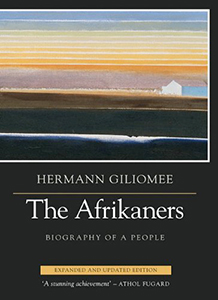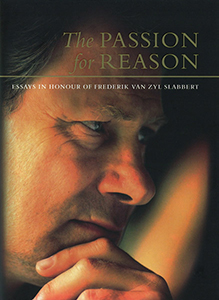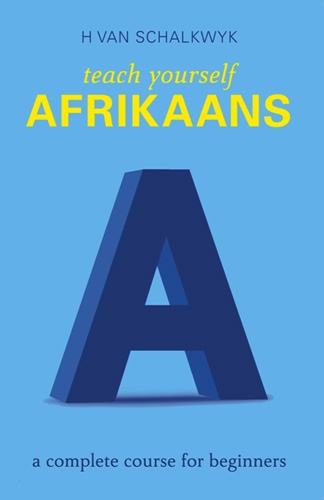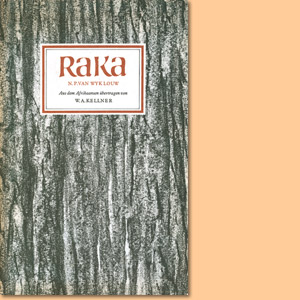The Afrikaners. Biography of a people, by Hermann Giliomee
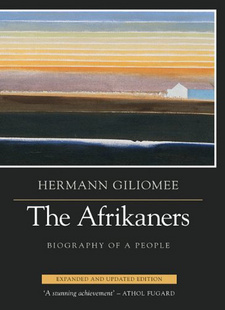
The Afrikaners. Biography of a people, by Hermann Giliomee. ISBN 9780624048237 / ISBN 978-0-624-04823-7
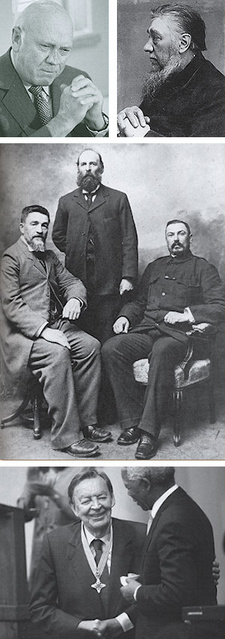
Images from Hermann Giliomee's book: The Afrikaners. Biography of a people, by Hermann Giliomee. ISBN 9780624048237 / ISBN 978-0-624-04823-7
This book is a biography of the Afrikaner people of South Africa, whose roots in the continent of Africa go back to the seventeenth century.
Their often turbulent history obscures the fact that they numbered only 1.2 million in 1936 and 2.6 million in 1980, when they formed close to 60 per cent of the dominant white group but less than 10 per cent of the total South African population. Yet they were, in the twentieth century, often in the world's spotlight. They were the first anti-colonial freedom fighters of the twentieth century to take on the might of the British Empire. In the second half of the twentieth century the Afrikaners, through their system of apartheid, became, in the term of Piet Cillie, editor of Die Burger, 'the polecat of the world.' Faced with international condemnation and internal resistance, they did something rare: surrendering power rather than resorting to more extreme forms of suppression and a suicidal last stand. This book attempts to tell the Afrikaners' story from the beginning with empathy but without partisanship. To understand is not necessarily to pardon, but there is no harm in trying to understand. So wrote a scholar of slavery in ancient Greece. It is also the approach of this book. It is quite a story. 'What young nation can boast a more romantic history, one of more far-reaching human interest? Color, incident, tragedy and comedy, defeat and victory joy and sorrow ... our early history is full of the most gripping human interest. If only we had the pen of Greeks, what a literary contribution should we make to our future treasures! There is gold not only in our earth, but still more in our history.'2 So Jan Smuts, politician, statesman, philosopher, co-drafter of the UN Declaration of Human Rights, world citizen and Afrikaner, said in 1949 when a monument was unveiled to commemorate the Great Trek of the 1830s when thousands of Afrikaners moved out of the Cape Colony into the deeper interior. There was indeed drama, heroism and magnanimity in Afrikaner history but also oppression, greed and the dehumanization of others. Afrikaner history began at the Cape of Good Hope, a settlement founded in 1652 by the Dutch East India Company at the tip of Africa. Most settlers were immigrants from Western Europe who had enlisted as soldiers or sailors in the Company's service and became farming free burghers at the Cape. Few ever went back or looked back. They were among the first colonial peoples to cut most of their family and community ties with Europe and to develop a distinct sense of self-consciousness; they made the new land genuinely their own. An exception was a small party of fewer than two hundred Huguenots from France but, by the mid-eighteenth century, they had been assimilated into the burgher community. The Afrikaners were both a colonized people and colonizers themselves, both victims and proponents of European imperialism. They were a colonized people in being obliged to respect die laws and authority of the Dutch East India Company, even if they were freed from its service to make a living of their own. If the burghers misbehaved the Company could take them back into its service as sailors or soldiers, even in some cases tearing them from their families. But they were also slave-owners and colonizers. In the western Cape almost every European family of standing owned slaves. Commandos, made up of burghers and Khoikhoi auxiliaries, formed the lighting force that established European control over the land and seized or recovered stolen stock. Farmers indentured the indigenous people's children and destroyed their culture. (...)
This is an excerpt from the book: The Afrikaners. Biography of a people, by Hermann Giliomee.
Title: The Afrikaners
Subtitle: Biography of a people
Author: Hermann Giliomee
Publisher: Tafelberg Publishers
Cape Town, South Africa 2011
ISBN 9780624048237 / ISBN 978-0-624-04823-7
Softcover, 17x24 cm, 752 pages, 8-page photo display
Giliomee, Hermann im Namibiana-Buchangebot
The Afrikaners. Biography of a people
The biography of the Afrikaner people in South Africa from the first European settlement to the present day.
The Passion for Reason. Essays in Honour of Frederik Van Zyl Slabbert
Various well known authers have contributed essays in honour of Frederik Van Zyl Slabbert in The Passion for Reason.
Weitere Buchempfehlungen
Afrikaanse Lyrik: Afrikaans-Deutsch
Afrikaanse Lyrik enthält 78 Gedichte aus verschiedenen zeitlichen Epochen, die sowohl in ihrer ursprünglichen Sprache Afrikaans als auch in Deutsch übersetzt abgedruckt sind.
Teach Yourself Afrikaans
Teach Yourself Afrikaans has been written for students with no previous experience who wish to study Afrikaans at home.
Raka
Raka: hier als meisterhafte deutsche Übersetzung des 1941 von N. P. van Wyk Louw in Afrikaans gedichteten Epos.
Emily Hobhouse and the Reports on the Concentration Camps during the Boer War 1899-1902
Two different perspectives on Emily Hobhouse and the Reports on the Concentration Camps during the Boer War 1899-1902.
Heidelbergers of the Boer War
Heidelbergers of the Boer War is the remarkable story of the people of the South African town Heidelberg.

